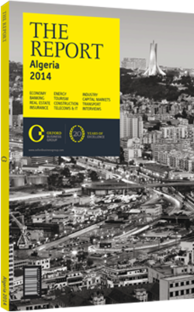OBG talks to Abdelkader Kadi, Minister of Public Works

Interview: Abdelkader Kadi
How can intermodal connections between road and maritime transportation be improved?
ABDELKADER KADI: Algeria has maintained its focus on upgrading infrastructure to rebalance territorial development. The development of infrastructure in Algeria consists of the following projects: the completion of a new road network that emphasises regional connections, the modernisation of the existing road network in line with international standards, the improvement of operating conditions on the road network, the maintenance of maritime infrastructure and the creation of new maritime infrastructure for trade, fishing and tourism, and the improvement of our airport infrastructure. Algeria boasts one of the densest road networks anywhere in Africa, stretching out over 119,039 km. Given that 90% of the country’s trips are made by road, these upgrades are imperative as the number of vehicles is expected to jump from 9m today to 20m by 2025, mainly concentrated in Algiers.
Algeria’s maritime infrastructure is composed of 11 trade ports, two oil ports, 41 fishing ports and one yacht harbour. Such a diversified system of transportation will require significant improvements to keep up with the emergence of new technologies. To do so, the public works sector has been engaged in the completion of 25 highway links extending over 2830 km, 13 of which are already being constructed at a length of 830 km, as part of a five-year programme from 2010-14. The remaining 12 links are still under study. These highway connections will play a very important role nationwide in terms of road traffic regulation in addition to reinforcing the distribution of the transportation network and developing intermodal connections with the main poles of economic activity, namely 34 wilaya (province) capitals, 12 ports and 11 airports.
What can be done by the government to ensure and improve the state of highway maintenance?
KADI: Highway network maintenance has primarily been carried out by wilayas’ Direction of Public Works. Moreover, the Algérienne de Gestion des Autoroutes, which administers the East-West Highway, is acquiring equipment to reinforce existing maintenance efforts. However, the administration had to hire additional private and public companies for emergency responses. As for the East-West Highway, a project is under way to repair locally degraded sections over a length of 128 km within the scope of the five-year plan: 96 km of this has been already rehabilitated by companies.
What impact should the project of doubling the RN1 road have on local development?
KADI: The RN1 is currently the main link between the north of Algeria, the Hauts Plateaux and the south, and as such already plays a strategic role in the country’s spatial planning policies. Doubling the road will enable the reduction of operating costs for road freight transport through the upgrades to infrastructure, the reduction of road accidents and lower traffic in cities served by the road such as Boughezoul and El Menea. Additionally, it will encourage investors to settle down in the south and Hauts Plateaux areas and promote EuroAfrican trade as part of the Trans-Saharan Highway.
How can investors deal with any challenges resulting from the Hauts Plateaux highway construction?
KADI: The major technical challenges for construction companies concerns their total compliance with existing quality standards. Some sections will indeed be more difficult to execute, notably in more marshy or rocky areas. Therefore, given the importance of the project, the selected companies will have to be committed to the improvement of techniques and materials in order to keep up to date with the latest advances in technology. To this effect, partnerships with foreign companies would provide them with the most feasible way to complete the project properly. The project will thus present a real opportunity for Algerian companies to reinforce their capacities, thereby ensuring more efficient management of cost, lead-time and quality.
You have reached the limit of premium articles you can view for free.
Choose from the options below to purchase print or digital editions of our Reports. You can also purchase a website subscription giving you unlimited access to all of our Reports online for 12 months.
If you have already purchased this Report or have a website subscription, please login to continue.

